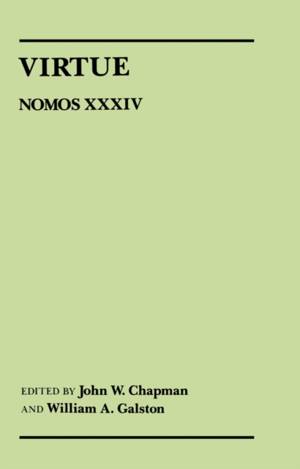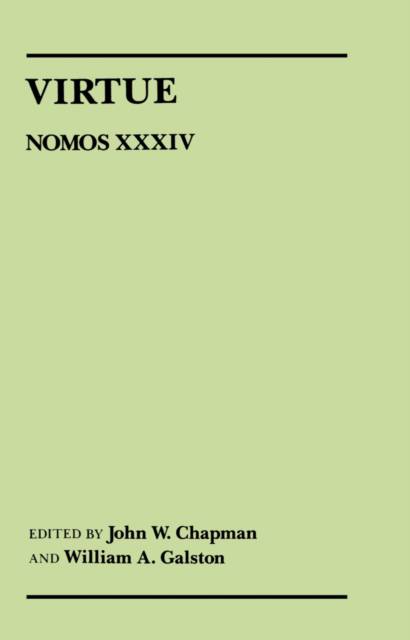
- Afhalen na 1 uur in een winkel met voorraad
- Gratis thuislevering in België vanaf € 30
- Ruim aanbod met 7 miljoen producten
- Afhalen na 1 uur in een winkel met voorraad
- Gratis thuislevering in België vanaf € 30
- Ruim aanbod met 7 miljoen producten
Virtue
Nomos XXXIV
Omschrijving
In the United States, there exists increasing uneasiness about the predominance of self-interest in both public and private life, growing fear about the fragmentation and privatization of American society, mounting concerns about the effects of institutions--ranging from families to schools to the media--on the character of young people, and a renewed tendency to believe that without certain traditional virtues neither public leaders nor public policies are likely to succeed. In this thirty-fourth volume in The American Society of Legal and Political Philosophy, a distinguished group of international scholars from a range of disciplines examines what is meant by virtue, analyzing various historical and analytical meanings of virtue, notions of liberal virtue, civic virtue, and judicial virtue, and the nature of secular and theological virtue.
The contributors include: Jean Baechler (University of Paris-Sorbonne), Annette C. Baier (University of Pittsburgh), Ronald Beiner (University of Toronto), Christopher J. Berry (University of Glasgow), J. Budziszweski (University of Texas), Charles Larmore (Columbia University), David Luban (University of Maryland), Stephen Macedo (Harvard University), Michael J. Perry (Northwestern University), Terry Pinkard (Georgetown University), Jonathan Riley (Tulane University), George Sher (University of Vermont), Judith N. Shklar (Harvard University), Rogers M. Smith (Yale University), David A. Strauss (University of Chicago), and Joan C. Williams (American University).
Specificaties
Betrokkenen
- Uitgeverij:
Inhoud
- Aantal bladzijden:
- 420
- Taal:
- Engels
- Reeks:
- Reeksnummer:
- nr. 19
Eigenschappen
- Productcode (EAN):
- 9780814714997
- Verschijningsdatum:
- 1/08/1993
- Uitvoering:
- Paperback
- Formaat:
- Trade paperback (VS)
- Afmetingen:
- 140 mm x 207 mm
- Gewicht:
- 480 g

Alleen bij Standaard Boekhandel
Beoordelingen
We publiceren alleen reviews die voldoen aan de voorwaarden voor reviews. Bekijk onze voorwaarden voor reviews.










